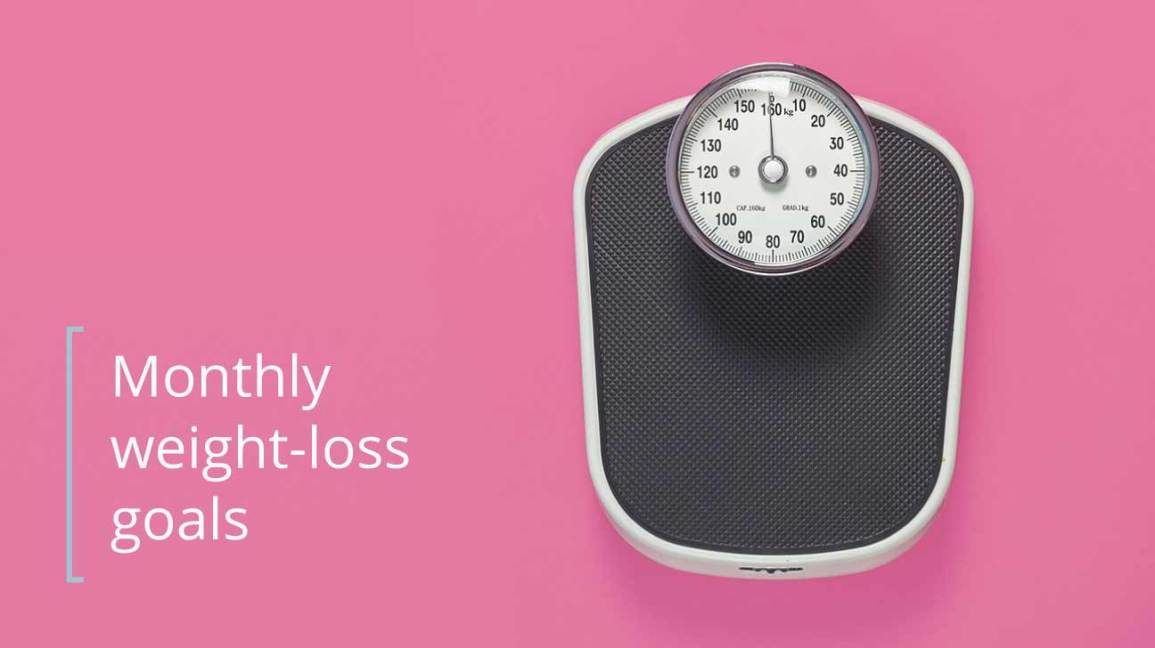The Pitfalls of Rapid Weight Loss: The Importance of a Balanced Diet and Exercise
In the quest to attain that ideal body weight, it’s essential to tread cautiously to avoid the pitfalls of rapid weight loss. It’s widely acknowledged that shedding off around 1-2 pounds per week, made possible through executing a balanced diet and exercising routinely, makes for a healthier and more sustainable weight loss regime. Though the allure of shedding weight quickly might be tempting, losing more than 8 pounds per month might not be sustainable nor healthy in the long run. Programs such as Weight Watchers are credible teaching platforms for mastering portion control and forming healthier eating habits. Strategies like strength training and high-intensity interval training can revolutionize your weight loss journey, fostering an increased metabolism. Even a minor weight loss ranging from 5-10% can bring about substantial improvements in health indicators like blood pressure, cholesterol levels and can significantly ward off diabetes risks. Bariatric surgery offers a fast-track method to weight loss, but even after the procedure, the loss rate tends to slacken over time. The key to long-lasting weight loss lies not in temporary diets or regimes but more balanced lifestyle choices inclusive of consistent healthy eating and routine exercise.

Understanding Rapid Weight Loss
Defining rapid weight loss
You’ve probably heard the term “rapid weight loss” getting tossed around a lot. In essence, it refers to the act of shedding off pounds in a short period. Depending on who you ask, “rapid” could mean anywhere from a few weeks to a few months.
Common techniques for rapid weight loss
Dieting and exercising are usually the first methods that come to mind. Exclusion diets, like Keto or Atkins, prompt you to cut out specific food groups entirely in hopes to cut off calories. On the other hand, high-intensity workouts seek to burn more calories than you take in. Prescription medications and supplements can occasionally join the roster too.
Why people resort to rapid weight loss
Several reasons might compel someone to choose the rapid weight loss route. Maybe it’s a significant event coming up, like a wedding or class reunion. Some might be guided by health concerns or advised by their doctor to lose weight quickly due to medical reasons.
Disadvantages of Rapid Weight Loss
Health complications associated with rapid weight loss
When you lose weight rapidly, your body undergoes drastic changes, which might trigger various health complications. It’s not uncommon to experience fatigue, constipation, dizziness, or even nutrient deficiencies. Severe rapid weight loss may potentially lead to gallstones or heart rhythm abnormalities.
The psychological effect of rapid weight loss
The process and aftermath of rapid weight loss can also affect your mental well-being. Changes in your appearance may cause image issues and induce stress or anxiety. Additionally, there’s a psychological burden in pursuing a goal so intensely then suddenly stopping once it’s achieved, which increases susceptibility to depression.
Sustainability issue of rapid weight loss
One of the main challenges revolves around sustainability. Sure, rapid weight loss methods might give immediate results, but maintaining those results over the long term is an entirely different game. Individuals who lose weight rapidly often regain the weight once they reintegrate old eating habits or stop their intense workout regimes.
The Implication of Extreme Diets in Rapid Weight Loss
Bounce-back weight gain from extreme diets
Extreme diets usually promise quick results, but they often lead to quick rebound weight gain – commonly known as yo-yo dieting. When you apply drastic caloric restrictions, your body slips into survival mode, which subsequently slows your metabolism. Once you start eating normally again, weight gain usually follows.
Malnutrition and nutrient deficiencies
Extreme diets often involve exclusion of specific food groups, which leads to the risk of nutrient deficiencies and malnutrition. This could compromise your immune system, affect your bone health, and potentially lead to serious chronic diseases down the line.
Effects of extreme diets on metabolism
Extreme diets often lead to a metabolic slowdown. Your body starts burning fewer calories to conserve energy during periods of severe calorie restriction. Once you resume normal eating, the weight piles back on because your slowed metabolism can’t burn calories as efficiently as before.
The Role of Bariatric Surgery in Rapid Weight Loss
Understanding Bariatric Surgery
Bariatric surgery includes several procedures performed on the stomach or intestines to promote weight loss. These procedures limit the amount of food you can consume or affect your body’s ability to absorb nutrients and calories.
Associated risks and complications
Bariatric surgery, like all surgeries, comes with its risks and complications. These may include infection, blood clot, bleeding or even long-term malnutrition. There’s also a significant chance of emotional and psychological difficulties post-op due to fast-paced body changes.
Post-surgery weight maintenance
It’s essential to understand that bariatric surgery is not a cure-all. Post-surgery, you’d still need to follow a healthy diet and exercise regime to maintain the weight loss.

The Importance of a Balanced Diet in Weight Loss
Elements of a balanced diet
To attain and maintain a healthy weight, incorporating all essential food groups in proper proportions is crucial. The key components of a balanced diet include carbohydrates, proteins, fats, vitamins, minerals, and water.
The role of a balanced diet in burning calories
The body burns calories in the process of metabolizing food, known as the thermic effect of food (TEF). A balanced diet rich in proteins, fiber and whole grains can increase TEF, thereby aiding in weight loss.
Benefits of a balanced diet to weight management
A balanced diet can aid in managing weight as it ensures your body gets all the necessary nutrients, keeping you fuller for longer and staving off the temptation to binge on unhealthy foods.
Strategizing Exercise for Healthy Weight Loss
Matching exercise to weight loss goals
The objective of weight loss should guide your choice of exercises. For instance, cardio exercises like jogging and swimming burn calories immediately, while strength training increases muscle mass, thus hastening metabolism in the long run.
The role of strength training and HIIT in weight loss
When combined, strength training and High-Intensity Interval Training (HIIT) can effectively expedite weight loss. Strength training boosts your metabolism by increasing muscle mass, while HIIT workouts burn a significant amount of calories in a short time.
The importance of regular exercise for weight maintenance
Once you’ve achieved your weight loss goal, it’s crucial that you keep exercising regularly to sustain it. Regular physical activity helps you to continue burning calories and prevents your metabolism from slowing down.

Weight Loss Programs for Long-term Success
How programs like Weight Watchers can support weight loss
Structured programs like Weight Watchers can lend a hand by teaching you to make healthier food choices and portion control. Additionally, the support and motivation from fellow members can prove pivotal when the going gets tough.
Other weight loss programs and their merits
Several programs are available, each with its methodology and advantages. Some might emphasize physical activity more while others focus on improving dietary habits. The best program for you will hinge on your personal preference, lifestyle, and weight loss goals.
Developing consistent healthy lifestyle habits through weight loss programs
What’s key is that these programs cultivate consistent, healthy habits. Through them, you learn to incorporate a healthy, balanced diet and regular exercise into your lifestyle rather than resorting to temporary diets or methods.
Understanding the Weight Loss Calorie Equation
The concept of calorie in versus calorie out
The essence of the weight loss calorie equation boils down to calories consumed versus calories burned. If you consume more calories than your body burns, you gain weight and vice versa.
Impact of caloric deficit on weight loss
Creating a consistent caloric deficit sets the stage for weight loss. This deficit forces your body to utilize stored fat as an alternative energy source, therefore leading to weight loss.
Making informed dietary decisions based on caloric values
Knowing the caloric values of the foods you eat will guide you in making informed dietary decisions. It gives you control over your calories intake, allowing you to ensure you’re in a caloric deficit and aligned with your weight loss goal.

Setting a Healthy and Sustainable Weight Loss Goal
Determining a realistic weight loss pace
It’s important to set a realistic pace for your weight loss. Losing 1-2 pounds per week through a balanced diet and exercise regimen is considered healthy and sustainable.
Understanding the health benefits of modest weight loss
Even modest weight loss (5-10% of body weight) can have significant health benefits. It improves blood pressure, cholesterol levels and reduces your risk of diabetes.
Importance of regular monitoring and adjustment of weight loss goals
Regular monitoring helps you keep track of your progress and motivates you to stay on course. As you proceed, it would be wise to adjust your weight loss goal as needed, making sure it stays challenging yet achievable.
Fighting Weight Loss Misconceptions and Pitfalls
Challenging the attractiveness of rapid weight loss
Like all fads, the appeal of rapid weight loss needs to be challenged. Understanding that it’s a temporary solution ridden with physical and psychological pitfalls should discourage its adoption.
Countering the harms of weight loss misconceptions
False weight loss promises and misconceptions can be harmful. It’s crucial to counter them with scientific facts and advocate for long-term, sustainable weight loss strategies involving balanced diet and regular exercise.
Promoting balanced diet and exercise-focused weight management
Creating a culture that champions balanced diet and exercise-focused weight management is key. It’s about the journey, not the destination – a lifelong commitment towards health and well-being, rather than a race to meet some idealized standard.



Pingback: Which Gland's Hormone Would Be Included In A Fast Weight Loss Supplement?
Pingback: Uncovering The Ingredients In Ozempic That Facilitate Weight Loss